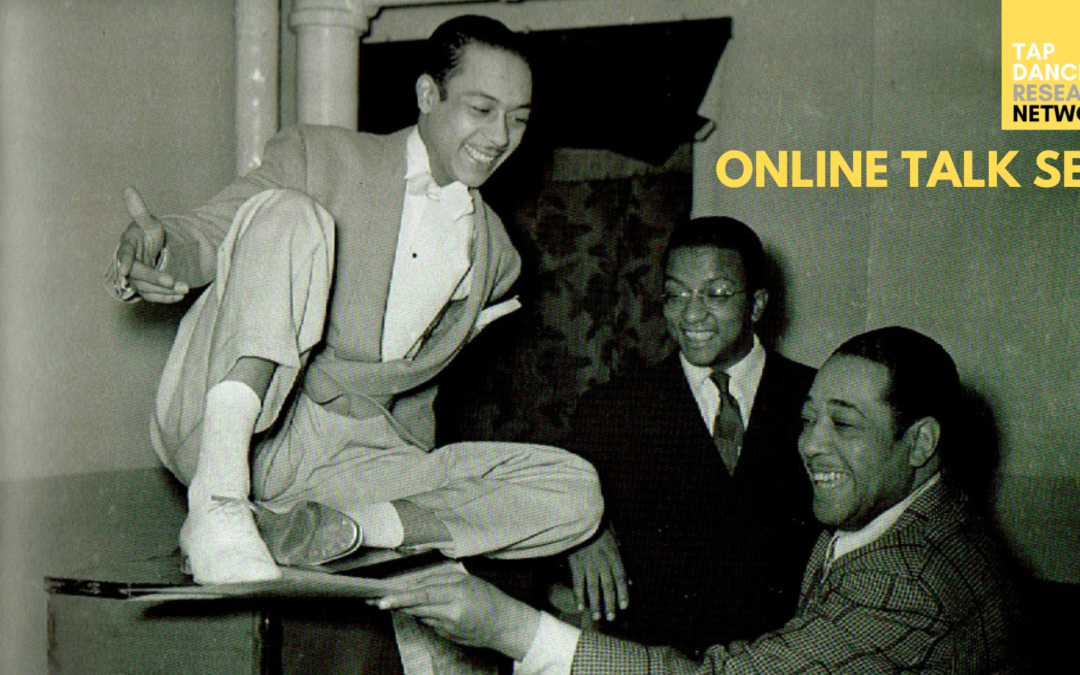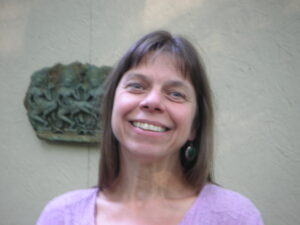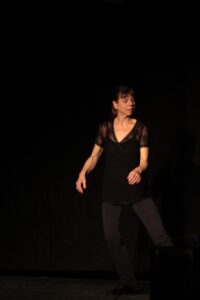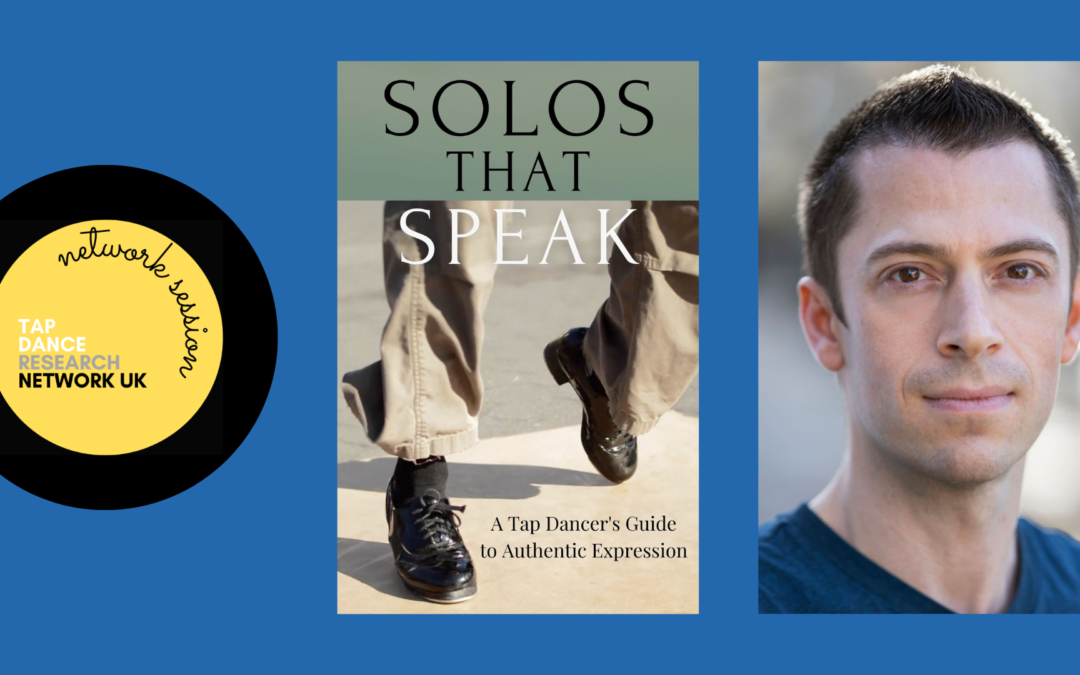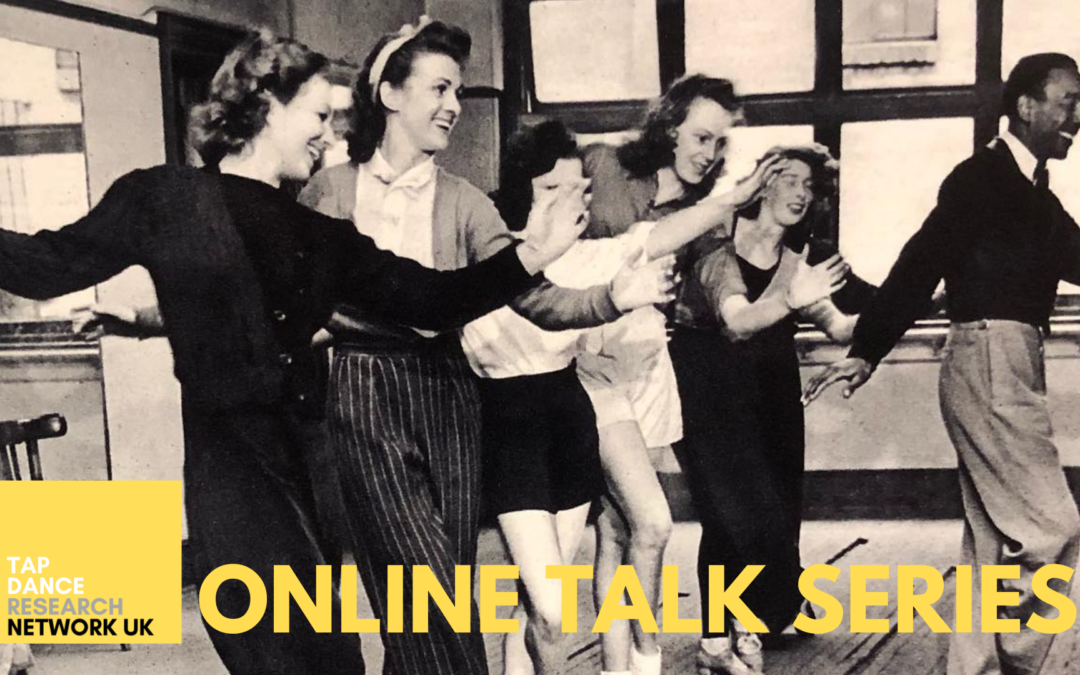
Jul 26, 2023
Tuesday 29 August 2023 19:00 – 20:30 BST | 11:00 PDT | 14:00 EDT | 20:00 CEST £6 / PWYC TICKETS
Annette Walker presents a follow up to her initial March 2021 presentation about a forgotten choreographer of British musical stage and screen, Buddy Bradley.
Buddy Bradley worked extensively in British musical theatre from his arrival in London in 1930 until he returned to New York in the 1960s. He made significant contributions to dance practice, choreographed for BBC productions and was the first credited black choreographer of British musical film, yet his work is barely acknowledged in British dance history. Buddy’s career began in New York where he coached many performers including Fred and Adele Astaire, Eleanor Powell and Lucille Ball. In London, he ran a dance school for over twenty years and was known as the number one coach to the stars including John Mills, Audrey Hepburn and Bruce Forsyth but his most significant work was with the stage and film star, Jessie Matthews.
Annette Walker’s presentation looks at a selection of Buddy Bradley’s surviving work in British musical film and the social and historical context of his life and career as an African-American choreographer in Britain. Uncovering Bradley’s dance work in film requires navigating negative racial stereotypes and tropes of black people that were prominent in Britain during the mid-twentieth century. The presentation raises questions about how racialisations in theatrical productions impact viewing tap dance and the work required to undo the “invisibilisation” of Black contributions to British musical theatre and dance history.
Biography: Annette Walker MA BSc (Hons) DipHE
Annette is an accomplished, multi-talented performing artist who has appeared in a variety of theatre, film, television and concert productions. Her tap dance features include the BBC Proms 2019 Duke Ellington’s Sacred Music concert at the Royal Albert Hall, Swinging at the Cotton Club (UK tour) and the short film, Dateleap (2022). As an aerial circus artist, she was one of the Mary Poppinses in the London 2012 Olympic Opening Ceremony.
Annette is the founder and the musical director of the band, Rhythmaticians, and headlined the Marsden Jazz Festival with her new tap dance show in 2021. She also works as a music director and musician for other dance, music and theatre productions with credits that include Swing Sister Swing (UK tour 2022), Myke Masters Band and Sandi Toksvig’s Mirth Control at the WOW Festival at the Southbank Centre.
Annette’s passion for integrating music and dance continues off stage as a researcher and educator and she has taught at many dance and music institutions including, Trinity Laban Conservatoire of Music and Dance, Mountview Academy of Theatre Arts, Royal Academy of Dance, The BRIT School, National Youth Jazz Collective and Tomorrow’s Warriors. She led the Renegade Stage (tap improvisation workshop) at the London Tap Jam for over 15 years, and is currently a co-director of Tap Dance Research Network UK. Annette is a fully funded AHRC PhD student researching the influence of African American choreographer, Buddy Bradley, on the British musical stage.
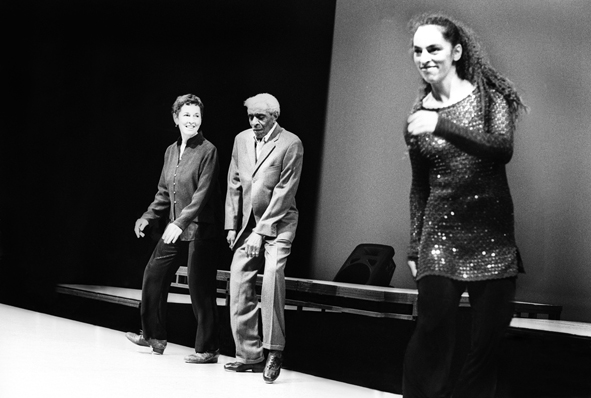
Feb 10, 2023
SARAH PETRONIO
Jazz Tap Artist Sarah Petronio was born and raised in India. She immigrated to New York at the age of 19 and later moved to Paris, France, where she became the dancing partner of Tap Legend Jimmy Slyde in the ’70’s and 80’s. The duo performed in “It’s About Time – an evening of tap and jazz” at concerts, and Jazz festivals in Europe.
A master teacher and performer and a major force in introducing rhythm tap to French audiences, Petronio founded the Gît-le-Coeur Cultural Center, the Paris Tap Dance Company and the Tap Dance Department of the American Center in Paris. In 1994, she joined the faculty of the Dance Center of Columbia College in Chicago and created the “Chicago on Tap” festival. She has appeared at festivals in New York, Colorado, Portland, Boston, Texas, Saint Louis, Kansas, Montana, Chicago, Israel, Hamburg, Berlin, Dusseldorf, Tokyo, Russia, Spain, Netherlands…
She has broken ground as a woman in the jazz world, bringing her special style of rhythms and improvisation to jazz clubs and jazz festivals: Umbria Jazz, Jazz Yatra India, Juan les Pins, Antibes, Avignon, Cannes, Ravinia, Fremantle Jazz…
Sarah has shared the stage with Gregory Hines, Honi Coles, Steve Condos, Lon Chaney, Chuck Green, the Nicholas Brothers, LaVaughn Robinson, Savion Glover, Brenda Bufalino, Dianne Walker, Lynn Dally, Acia Gray and many other very talented tap dancers…
She dances “live” on several radio shows: Chicago Jazz with Neil Tesser, France Musique “Jazz Club” with Claude Carrière. She participates in many television shows on tap dancing: “Honi Coles, A Class Act” and the Riou-Pouchain film “Les Claquettes, Quel pied”….
She received:
*Tapparade Award (Moscow) for her Contribution to Performance Art and Excellence in Teaching Tap Dance in Russia
*The Tapestry Award (Masachusetts) for Teaching with Passion and Dedication.
*The Tapestry Award (Austin Texas) for her Timeless Dedication to the Art of Tap Dance.
*Hoofer of the Year 2005” (Tap City-New York).
*Tradition in Tap for Outstanding Achievements and Significant Contribution to the Art and Tradition of Tap Dancing (New York 2011).
In 2007, she was requested by the French National Dance Center to teach the prestigious “La Grande Léçon” giving the audience an intimate, inside look at a master teacher at work. She has appeared in the film “Honi Coles, A Class Act” and has been a part of several French television documentaries on Tap Dancing including “Les Claquettes, quel pied!”
She produced and directed stage productions : “Jazz In Motion”©, “When Tap Meets Jazz”© and “Tap Messengers”© concerts on numerous occasions at the New Morning Paris, the Kennedy Center in Washington, the Perth International Arts Festival in Australia, Mercats des Flors in Barcelone. In 2015 she created “Thelonius” presented at the Tanzhaus nrw in Dûsseldorf in 2014 and at the Duke Theater on 42nd street for the Tap City Festival in New York.
Her book « Footwork, my life in dance » was published in May 2022.
“Sarah Petronio is one of our veritable jazz tap dancers whose musicality, phrasing, intricate rhythmic motifs, swing, and insistence on listening to and working with jazz musicians in performance truly distinguish her as a jazz dancer. She blurs the boundaries between the music and dance, refusing that the music be mere accompaniment. Her ethos of improvisation, and the way in which she listens to and inserts herself into the musical ensemble is similar in practice to the great Baby Laurence – though her sound and her rhythmic sensibilities are totally her own. She is an original jazz tap dance artist.” – Constance Valis Hill, dance historian
“Imagine the breezy, freewheeling tap of Bill Robinson, the stage savvy of Sammy
Davis Jr. and the unpredictable rhythms of Thelonious Monk, and you’ll understand the basic vocabulary of Petronio’s art. Listen closely and you’ll hear some fascinating rhythms; watch closely and you’ll see an actress whose mood, expression and tone change constantly. Her work genuinely constitutes jazz; the rhythms she articulates and the way she embellishes and improvises upon the work of her rhythm section falls easily within the acoustic jazz tradition. Petronio is a rare artist – an original.” – Howard Reich, Chicago Tribune Arts/Jazz Critic
“Petronio moved past jazz-tap’s expected musical base, the easy swing rhythms of Count Basie; instead she prefers to apply her feet to music by more modern artists such as Thelonius Monk, Bud Powell, Bill Evans and Carlos Jobim. But she solos with the straightforward delight in pure motion that characterized Basie’s greatest drummer, Jo Jones.”
– Neil Tesser, Jazz Critic Chicago Reader
“An exaltation was present in « Just You, Just Me » an improvisational duet performed by the great Jimmy Slyde and Sarah Petronio, a dream of a dancer, who has the relaxed and wordly chic of an American transplant to Paris, where she has taught generations of tap performers.” – Jennifer Dunning, dance critic, New York Times
LEELA PETRONIO
Franco-American, LeeLa Petronio comes from the lineage of Rhythm and Jazz Tap through her mother (Sarah Petronio, privileged partner of the legendary dancer Jimmy Slyde) and participates during the 80s and 90s in the USA, in the rebirth of Tap Dance. As a teenager, she trained and performed on stage with dancers such as Gregory Hines, Honi Coles, Savion Glover, Steve Condos, Lon Chaney. She develops projects around percussive dance drawing on the determining influences of her career – jazz culture, tap dance, hip hop dance, STOMP. Today she wears several hats – dancer, choreographer, producer, teacher, administrator, performer – sailing between different worlds in France and internationally.
From 1996 to 2001, she collaborated with the hip hop dance company Funk Attitude whose shows were presented in many venues. In 1999, she curated the show «Planète Tap» for Suresnes Cité Danse bringing together an international cast of tap dancers from around the world. Since 2001, she has been part of the European cast of STOMP. The only Frenchwoman in the team, she continues to perform intermittently with them, and for the closing ceremonies of the London Olympics in 2012.
Since 2006, LeeLa runs the Hip Tap Project, a multidisciplinary collective of dancers and musicians. Her choreographic work has developed around rhythm as a universal language and a link between artistic forms. A work of fusion of urban, jazz and contemporary dances with the work of rhythm and sound, in a creative and current approach. Her shows have been presented in many theaters and festivals including the Rencontres des Cultures Urbaines de la Villette, the Tanzhaus nrw Düsseldorf, the French Institute of Istanbul, the National Center of Dance, the Kalypso Festival, the Artchipel national stage of Guadeloupe, the Comedy Club of Jamel in Paris, the Maison des Métallos in Paris, the Palais du Littoral in Grande Synthe…In 2019 she created “à l’unisson” in collaboration with Jep Melendez and an international team, which premiered at the Artes Escenicas Iboamericana in Tenerife.
Her eclectic approach has led her to projects with the Cirque du Soleil in Italy, a tap concerto performed with a symphonic orchestra at the Paris Opéra Comique, collaborations with various artists such as dancers Meech and David Colas, Fernando Barba and Marcelo Pretto (Barbatuques), beatboxers Kosh, Franck AliMbaye Blade and L.O.S, Quartet Buccal, and with the theater company Tamèrantong!, Lili Cros et Thierry Chazelle, Patricia Greenwood Karagozian and “Fractales” with Patrice Moullet. She performed as a solo artist at the Joyce Theater for the New York City Tap Festival, the Festival Sole to Soul in Austin, Rhythm Explosion in Montana, Tap Days at Tanzhaus Düsseldorf, special events at the Quai Branly Museum, the Opéra Garnier and the Centre National de la Danse. She was a special guest with the Jazz Tap Ensemble at the Salzburg Jazz Festival and with acclaimed French singer Camille at the Cirque d’Hiver. She was part of the proj ect “About Tap” by Thomas Marek at the Kampnagel in Hamburg. From 2006 to 2009, she hosted the Paris Tap Sessions, filmed for the documentary “Les claquettes, quel pied!” by Riou and Pouchain (France 5 / Arte).
She shared the stage with her mother, Sarah, in “Jazz in Motion” with leading French jazzmen on numerous occasions at the New Morning Paris, the Kennedy Center in Washington, the Perth International Arts Festival in Australia, Mercats des Flors in Barcelone; and in “Thelonius” presented at the Tanzhaus nrw in Dûsseldorf in 2014 and at the Duke Theater on 42nd street for the Tap City Festival in New York in 2015. She is part of the team of a new show “BODY MUSIC – see music, hear dance” created by Keith Terry and Jep Meléndez which brings together seven international references of body music, in a collective creation, premiered in October 2016 at the Maison des Métallos in Paris. She also joined the Original Magik Step Collective (jazz-rock) for a new creation produced in January 2019 for Suresnes Cités Danse. In 2022, she created « Its about time », a new stage production – a tribute to Sarah Petronio’s artistic universe, performed by an international dream team. The show premiered on May 27 at Tanzhaus nrw/Düsseldorf, as part of the Tap Dance Days festival and will be presented in June 2023 in AUSTIN/Texas (USA) during the Soul 2 Sole festival
Recognized as one of the references in the current emergence of body percussion, she was invited to represent France at the International Body Music Festival in San Francisco in 2009, in Sao Paulo in 2010, in Istanbul in 2012, in Italy in 2014, in Athens in 2017. In October 2016, she produced the International Body Music Festival for the first time in France, in co-production with the Maison des Métallos.
Renowned and appreciated for her pedagogy, she teaches intensively in Europe, the USA, Turkey, Brazil … In France, several institutions call upon her regularly for masterclasses and professional trainings (Pôle Aliénor in Poitiers, National Center of the Dance, the City of Paris, Cités Danses Connexion …). She carries out numerous projects which combine creation and transmission, in particular in collaboration with music and dance conservatories, cultural services and various cultural venues. Leela was an associated artist to the Music, Theater and Dance Conservatory Francis Poulenc in Tours in 2021 and in 2023 to the Cité des Arts and the City of Chambéry. In 2021 she created a new festival #PDF/Percussive Dance France and has just launched a new professional certification program around the Hip tap technique with the Pôle Aliénor in Poitiers (higher education for music and dance).



